BAINBRIDGE ISLAND CAMPUS
Our 250-acre campus on Bainbridge Island, Washington hosts our School Overnight Program, graduate program, meetings and retreats, weddings, special occasions, summer camps, and public events for adults and families. Our campus features six different natural ecosystems, miles of trails, a garden classroom, and a sustainably-built infrastructure that facilitates learning, discovery, and community building.
See a map of Bainbridge Campus here.
Our campus-based programs, from our School Overnight Program to summer camps, operate year-round and serve thousands of school-aged children every year. To ensure the safety and well-being of the young people in our care, our campus – including the trail system – is private and all guests and visitors must check-in at the Welcome Center.
On many weekends throughout the year, when children and other event guests are not on site, we offer free and low-cost programs on our campus. Check out our Events Calendar for upcoming opportunities.
Thank you for helping us ensure the safety of children who participate in our programs!
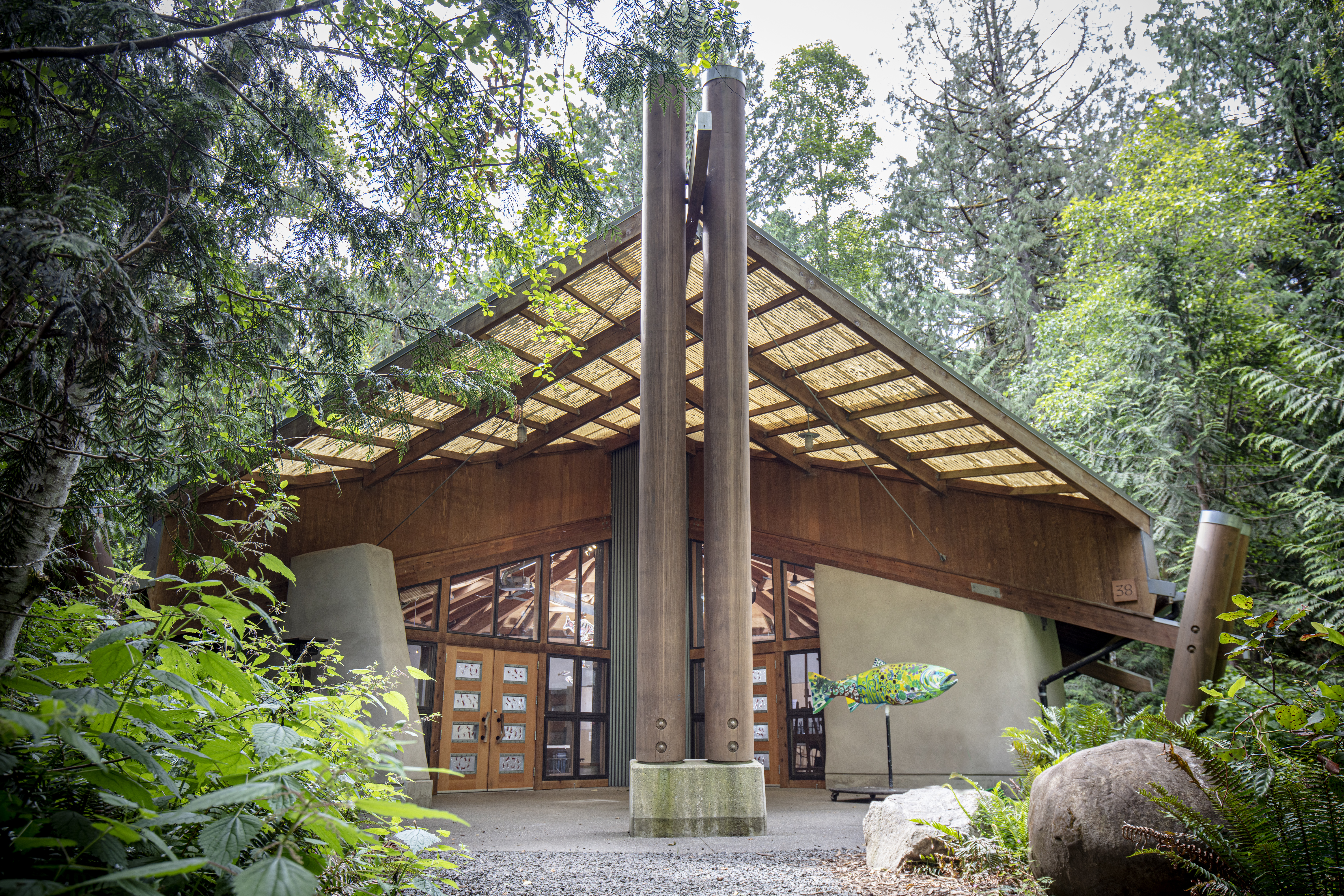
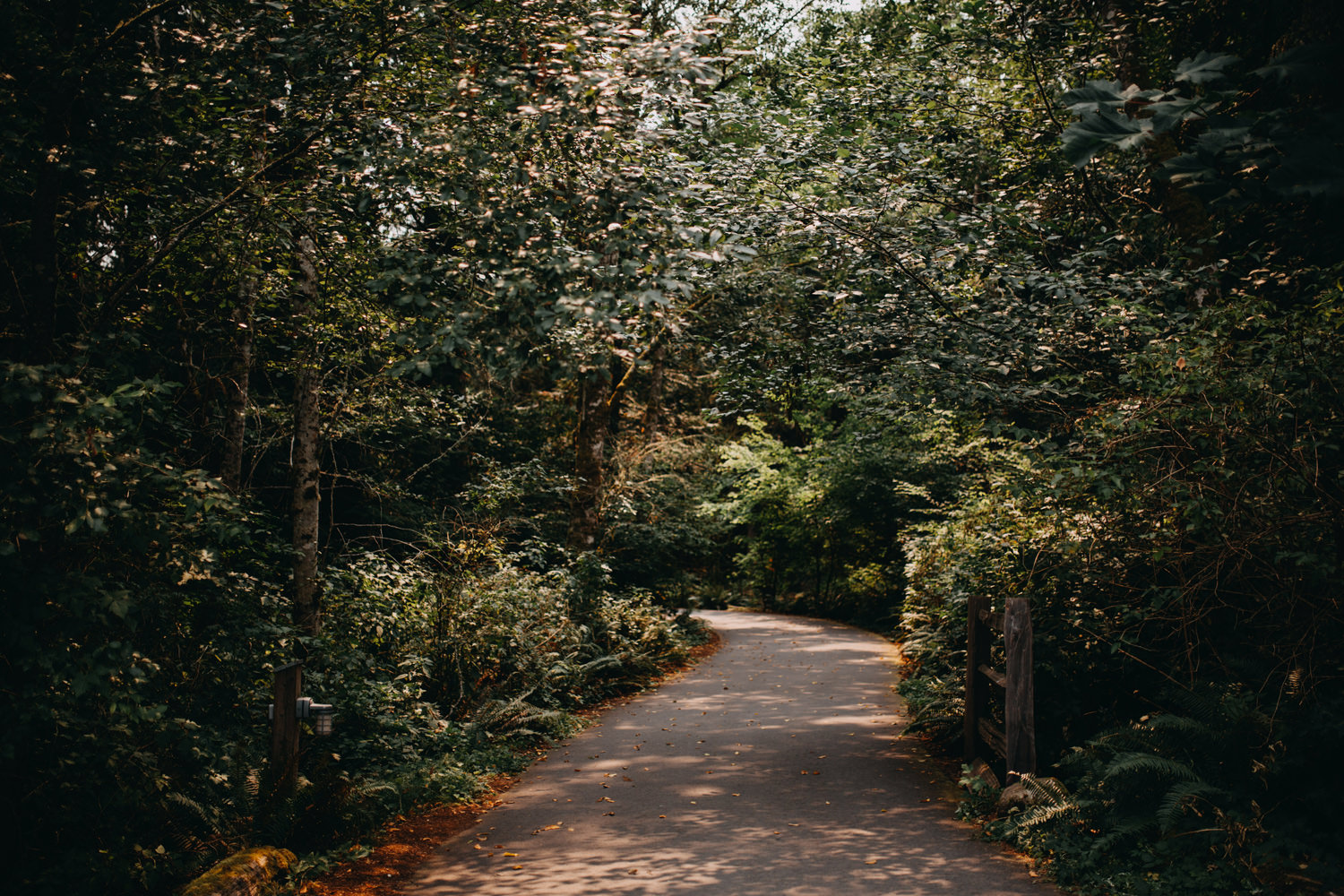
Our campus was sustainably designed and is LEED Gold certified. Sustainable design elements include:
IslandWood is continually striving to ensure our campus and our programs are accessible, equitable, and inclusive; foster community building; and safeguard the well being of our clients.
IslandWood abides by a fragrance-free policy. Due to the potential chemical sensitivity of visitors to our campus, as well as employees, graduate students, volunteers, and interns working at IslandWood, we ask that everyone refrain from using perfume, essentials oils, and other scented/fragranced products.
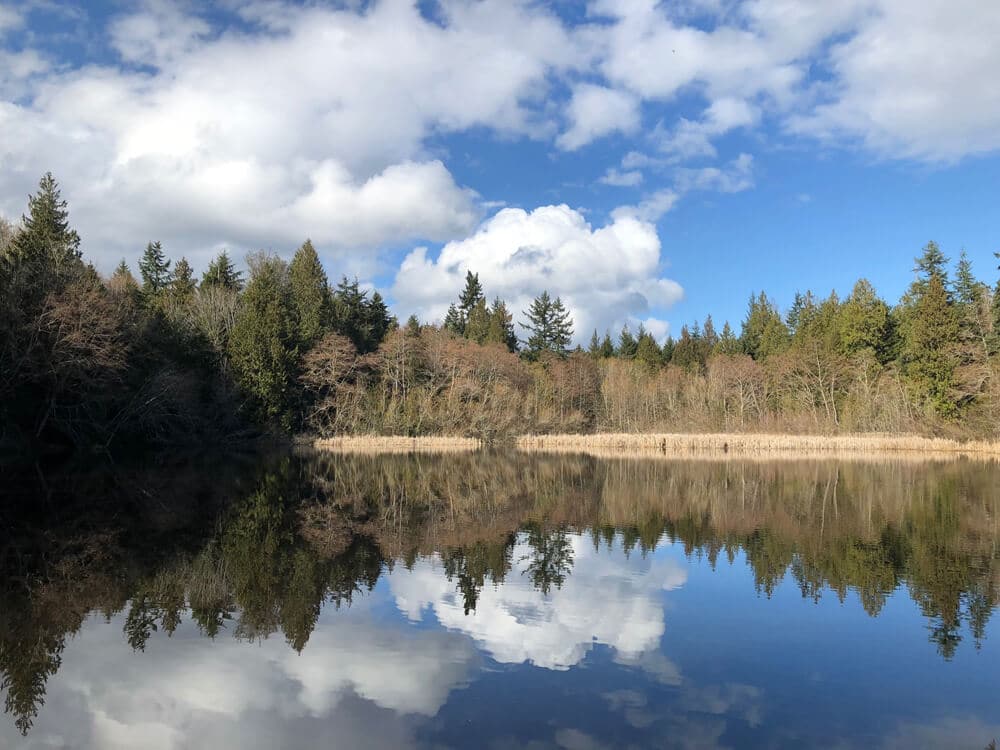
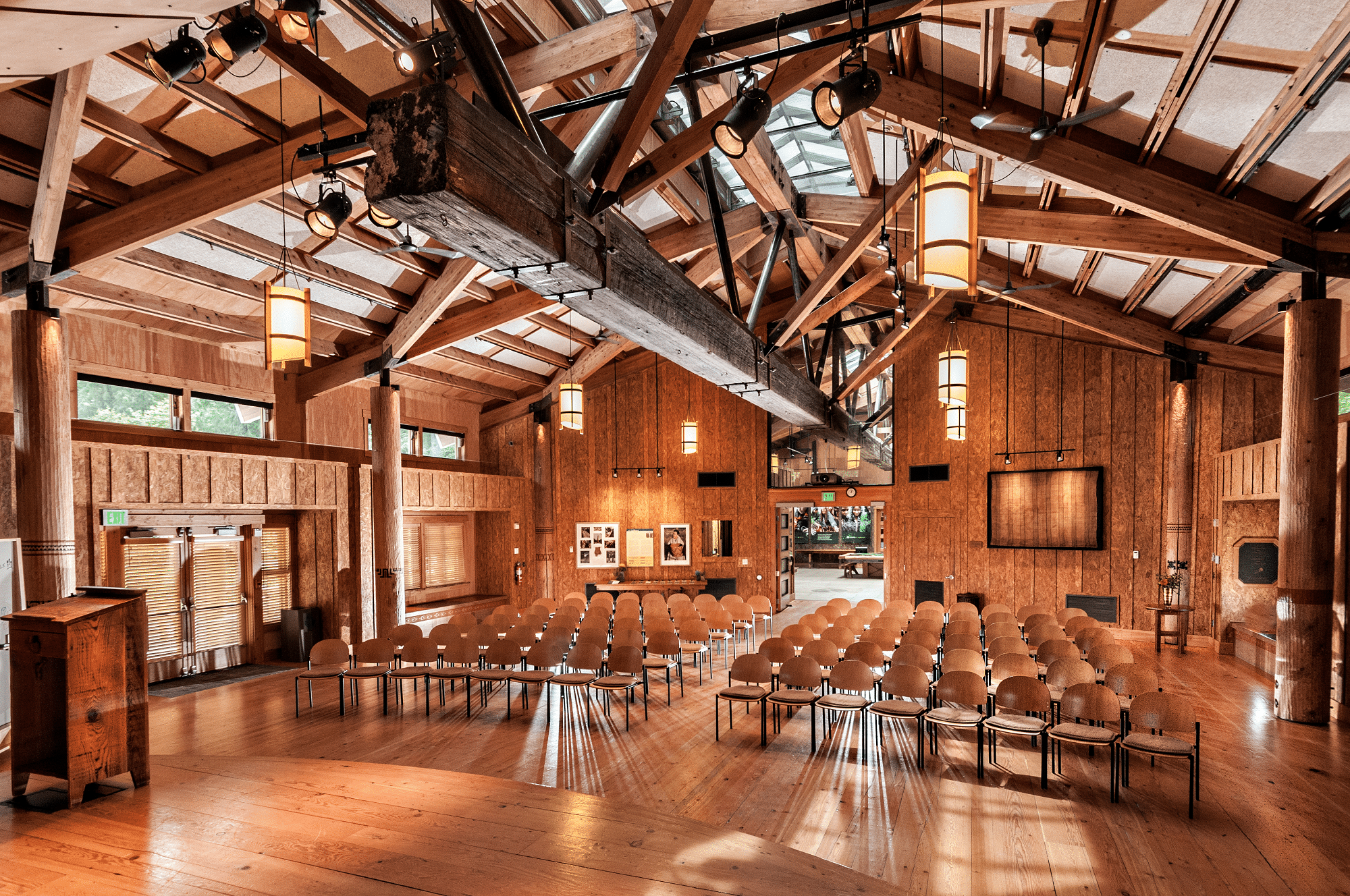
Our campus is located at 4450 Blakely Avenue NE on Bainbridge Island, which is a 35-minute ferry ride from downtown Seattle.
From the Bainbridge Island Ferry, Kitsap Transit Route #98 and Route #97 buses stop in the vicinity of IslandWood.
NOTE: Kitsap transit does not run on weekends and has limited bus service.
Kitsap Transit also offers ACCESS Service which provides door-to-door or curb-to-curb transportation to the elderly and disabled unable to use the fixed route transit system.
The ferry from Seattle to Bainbridge Island departs from the Coleman Dock located at:
801 Alaskan Way Pier 52
Seattle, WA 98104
IslandWood acknowledges that we live and work on the ancestral land of the Coast Salish people, who have been stewards of this region's land and waters since time immemorial, and who continue to protect these lands and waters for future generations, as promised by the Point Elliott Treaty of 1855, the Treaty of Point No Point of 1855, and the Treaty of Medicine Creek of 1854.
While the majority of our work takes place on Suquamish (suq̀ʷabš) and Duwamish (dxʷdɐwʔabʃ) land, we also conduct programs on the land of the Snohomish (sduhúbʃ), Puyallup (spuyaləpabš), Muckleshoot (buklshuhls), Skokomish (sqoqc’bes), and S’Klallam (nəxʷsƛ̕ay̕əm) peoples.
IslandWood is a registered 501(c)(3) charitable organization. Our tax ID number is 31-1654076.
4450 Blakely Ave. NE, Bainbridge Island, WA 98110 206.855.4300
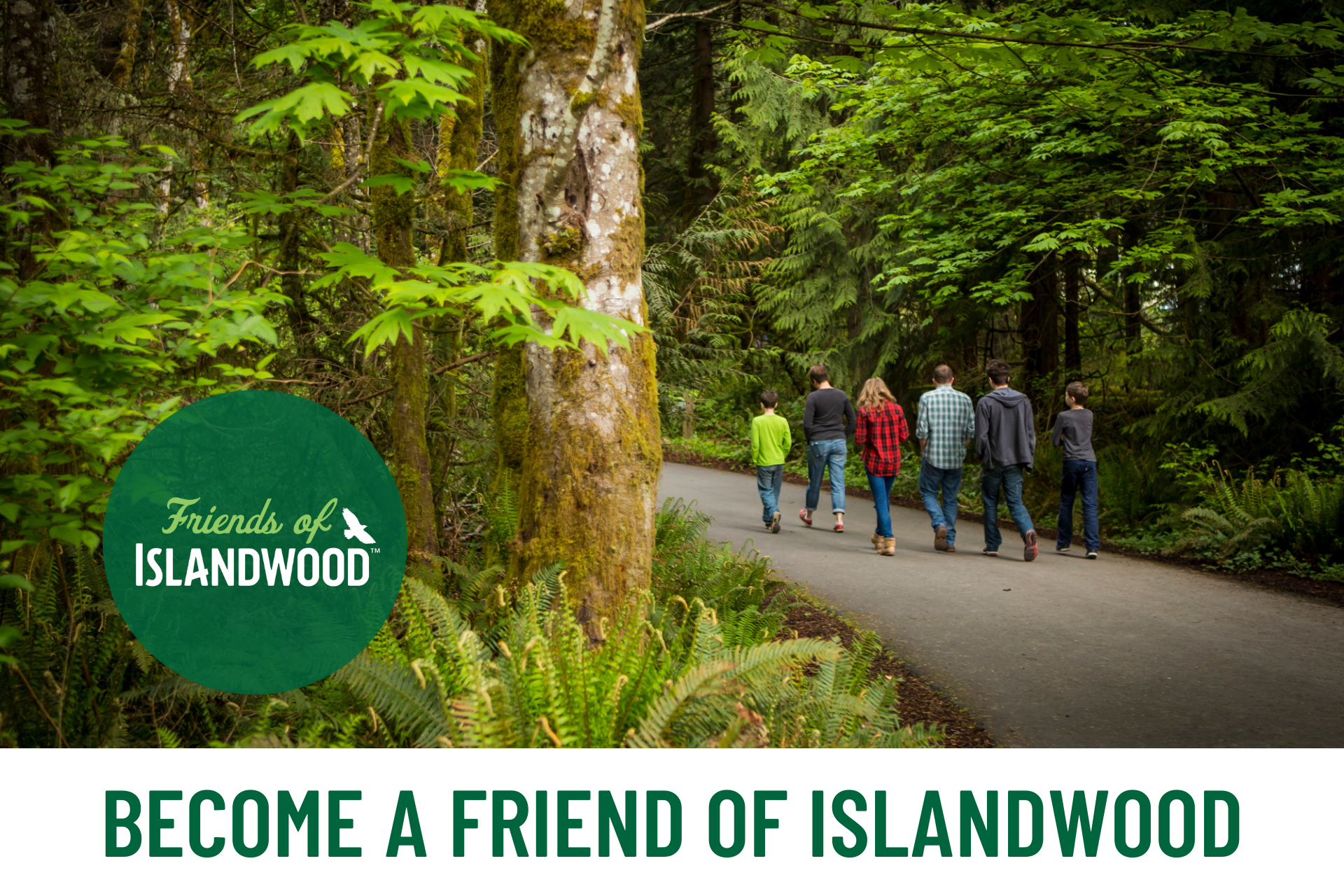
When you give $150 or more over twelve months, you become a Friend of IslandWood. You’re supporting our environmental education programs throughout the region AND you’ll have special access to our Bainbridge trails. Learn more!